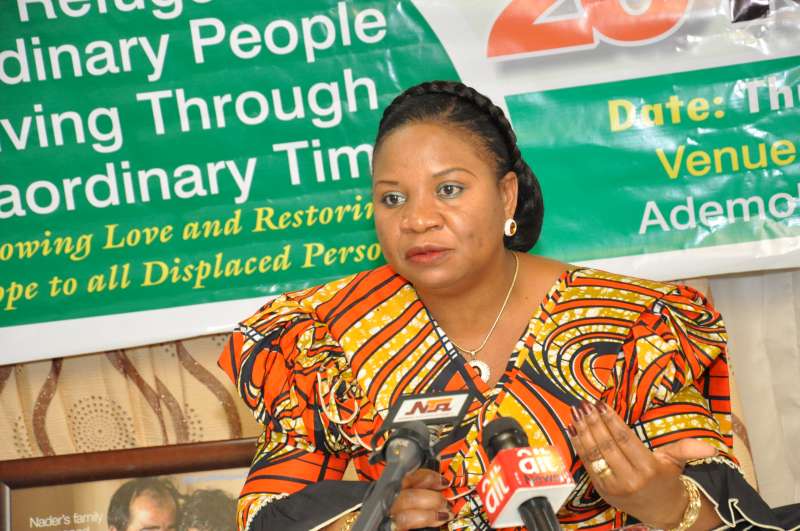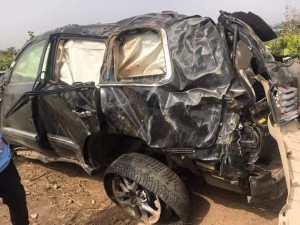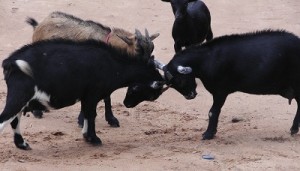
UNHCR Solicits Urgent Sustained Attention For IDP Women On International Womens Day
She stated this at the eve of the 2016 International Women’s Day (IWD) on Nigeria Info on 7 March 2016, in Abuja.
Mrs Dikongue, UN Women Representative in Nigeria, Dr. Grace Ongile and the European Union Communication Officer, Mrs. Torehall Pauline, spoke on the show alongside each other.
This year’s commemoration is being held on the theme, “’Planet 50-50 by 2030: Step It Up for Gender Equality Significance and benefits of the event.”
The United Nations began celebrating International Women’s Day (IWD) on 8 March, 1975.
Since then it has become a rallying point for the recognition of women for their achievements, without regard to divisions, whether national, ethnic, linguistic, cultural, economic or political.
It is also an occasion for instruction on their struggles and accomplishments, as well as untapped potential and opportunities that await future generations of women.
IWD encourages advocacy for women’s advancement. In Nigeria, the day is being marked in the context of internal displacement of over 2.2 million people and affecting over 5 million others, most of them women and children.
Most disturbing is the asymmetrical warfare tactics used by Boko Haram which has evolved over the course of its campaign to target women and girls; in particular the use of young female suicide bombers to carry out terrorist attacks in crowded civilian areas.
Abducted women and girls have been subjected to rape, early marriage, and used as sex slaves.
The implication is to inflict collective terror on women as a social group as well as dehumanize them.
The fear of violence and sexual abuse traps women in their homes and prevents them from engaging in important economic activities .
The insurgency and counter-insurgency measures have also had very serious negative effects on the livelihood of many populations, most especially women.
It is observed that public security volatility in the northeastern states has hampered normal productive agricultural and commercial activities where women play active roles.
The fear of attacks by the insurgents has often driven them into hiding.
Women in various spheres of the Nigerian political and economic life are besieged with these and many more challenges, of which discrimination is the most common.
There is, therefore, urgent need to consistently focus the recognition of the contribution of Nigerian women, to stimulate greater confidence in the ability of women to support the implementation of the change agenda.
“Women are the foundation of the world and men are not in competition with them, but should be viewed from the context of complementarity”, stressed Mrs. Dikongue.
In 2015, UNHCR trained 350 female IDPs in weaving recycled plastic bags into bags, mats, and rugs in Adamawa and Abuja with the partnership of the American University of Nigeria (AUN) and the National Centre for Women Development.
Psychosocial support programmes are also on-going to address the traumatized women and children in partnership with Family Health Initiative (FHI360) and International Refugee Committee (IRC).
To the UN Women Representative, Mrs. Ongile, it is inconceivable that half of the world, which is women, be neglected.” It is not a fight but a human rights perspective,” she argues.
She pointed to the fact that in Africa, for instance, there are just two woman presidents in Liberia and Malawi, who will soon quit the stage.
According to Mrs. Torehall, there is need for shared responsibility between women and men for a harmonious and developed society.
She cited the example of her Sweden whose parliament has equal representation for men and women
In Nigeria, the celebration aims at increasing awareness among Nigerians about ordinary women’s contribution to development results in their various constituencies, within the context of the SDGs, increased confidence of the leadership of the country and the general public in the important role and contribution of women in National Development and the change agenda.
On 8 March, 2016 IWD, the programme will include, among others, a round-table discussion on the IDP situation of women and children in Nigeria and another on empowerment of women and women in peace & security.


